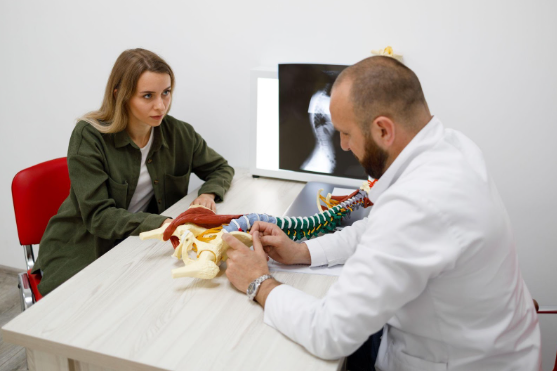
5 Questions to Ask Your Gastroenterologist
June 15, 2023
acid reflux treatment
June 16, 2023Exploring Acid Reflux: Causes, Symptoms, and Effective Management
Acid reflux, also known as gastroesophageal reflux disease (GERD), is a common digestive disorder that occurs when stomach acid flows back into the esophagus, causing discomfort and various symptoms. Understanding the causes, symptoms, and management strategies for acid reflux can help individuals alleviate discomfort and improve their quality of life.

Causes of Acid Reflux:
The lower esophageal sphincter (LES) is a muscular ring that separates the stomach from the esophagus. In people with acid reflux, the LES may weaken or relax, allowing stomach acid to flow upward into the esophagus. Several factors contribute to the development of acid reflux:
Dietary Choices: Consuming acidic, spicy, or fatty foods, as well as caffeine, chocolate, and citrus fruits, can trigger or worsen acid reflux.
Obesity: Excess weight can put pressure on the stomach, potentially causing stomach acid to flow back into the esophagus.
Smoking: Smoking weakens the LES and increases stomach acid production, making acid reflux more likely.
Pregnancy: Hormonal changes and pressure on the abdomen during pregnancy can lead to acid reflux.
Hiatal Hernia: This condition occurs when part of the stomach protrudes through the diaphragm, potentially affecting the LES's function.
Symptoms of Acid Reflux:
Acid reflux can manifest with a variety of symptoms, ranging from mild to severe. Common symptoms include:
- Heartburn: A burning sensation in the chest or throat, often after eating or when lying down.
- Regurgitation: The backflow of stomach contents, including acid, into the throat or mouth.
- Chest Pain: Pain or discomfort in the chest that can mimic heart-related pain.
- Dysphagia: Difficulty swallowing, often due to irritation or narrowing of the esophagus.
- Chronic Cough: A persistent cough, particularly at night, can be a symptom of acid reflux affecting the airways.
Effective Management of Acid Reflux:
Managing acid reflux involves a combination of lifestyle modifications, dietary changes, and, if necessary, medical interventions. Here are some strategies for effectively managing acid reflux:
Dietary Adjustments: Avoid trigger foods like citrus fruits, tomatoes, caffeine, chocolate, spicy foods, and fatty meals. Instead, opt for a balanced diet rich in fruits, vegetables, lean proteins, and whole grains.
Portion Control: Eating smaller, more frequent meals can help prevent excessive stomach distension, reducing the risk of acid reflux.
Elevating the Head of the Bed: Raising the head of the bed by 6 to 8 inches can prevent stomach acid from flowing back into the esophagus while sleeping.
Weight Management: Maintaining a healthy weight can alleviate pressure on the stomach and lower the risk of acid reflux.
Avoiding Late-Night Eating: Consuming meals or snacks close to bedtime can worsen acid reflux symptoms. Try to finish eating at least 2-3 hours before lying down.
Smoking Cessation: Quitting smoking can improve LES function and reduce stomach acid production.
Over-the-Counter Medications: Antacids, H2 blockers, and proton pump inhibitors (PPIs) can help reduce stomach acid and alleviate symptoms. Consult a doctor before using these medications long-term.
Medical Intervention: If lifestyle changes and medications do not provide relief, a healthcare professional may recommend further evaluation, including upper endoscopy or surgery.
Frequently Asked Questions (FAQs)
Can acid reflux cause chest pain?
Yes, acid reflux can cause chest pain known as heartburn. However, it's important to rule out other potential causes, especially if the pain is severe.
What foods trigger acid reflux?
Foods like citrus fruits, tomatoes, caffeine, chocolate, spicy foods, and fatty meals can trigger or worsen acid reflux symptoms.
Can stress cause acid reflux?
While stress itself doesn't directly cause acid reflux, it can exacerbate symptoms in individuals who are prone to the condition.
Can I still enjoy coffee if I have acid reflux?
Coffee can trigger acid reflux due to its acidity and caffeine content. Switching to low-acid or decaffeinated options may help.
When should I see a doctor for acid reflux?
If you experience frequent or severe acid reflux symptoms, chest pain, difficulty swallowing, or chronic cough, consult a doctor for proper evaluation and management.
In conclusion, understanding the causes, symptoms, and management strategies for acid reflux is essential for individuals seeking relief from this common digestive disorder. By making lifestyle adjustments, avoiding trigger foods, and consulting healthcare professionals as needed, individuals can effectively manage their acid reflux and improve their overall well-being.



